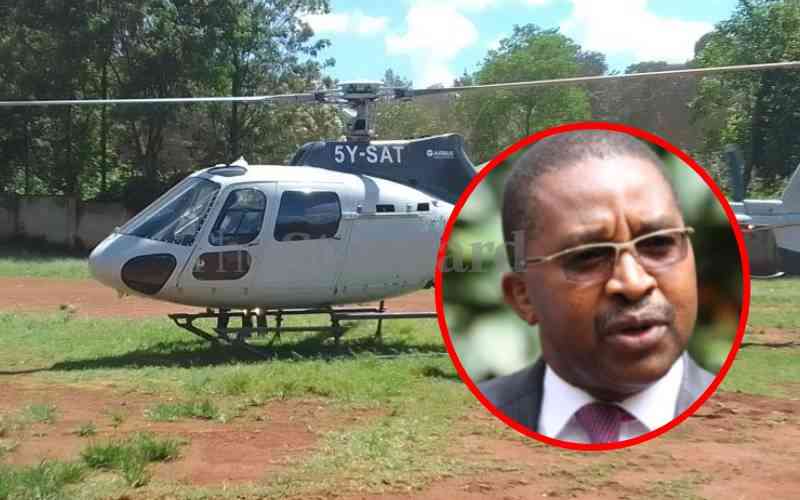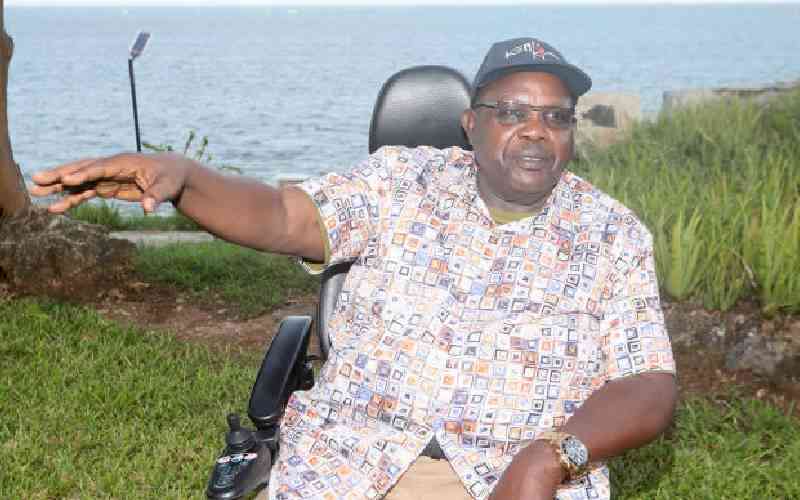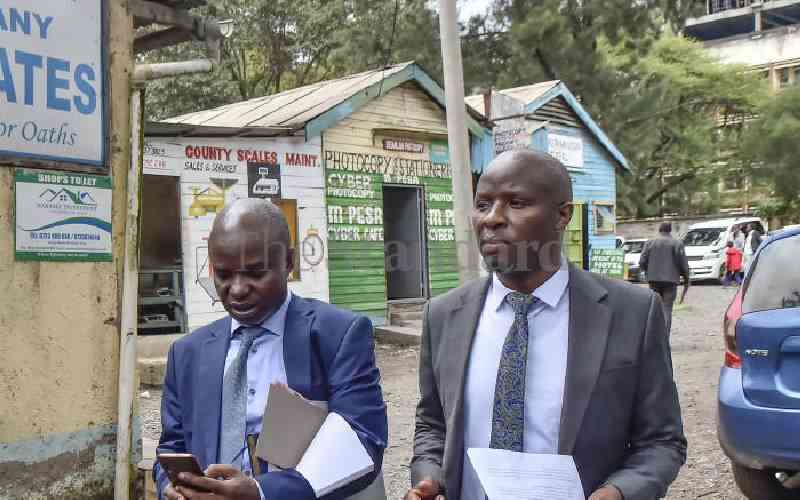When President Uhuru Kenyatta apologised to Kenya for the failings of Government, a few weeks ago, I personally accepted the apology unconditionally.
I saw no need to cast aspersions upon the President’s apology. Never mind that the President did not tell us what, exactly, he was apologising for. It sufficed to know the Head of State had met his Damascus Moment. Like Paul of Tarsus, the President saw the light. I considered it unmannered to second-guess this apology. For apology is the child of a repentant heart. The President requested Parliament to debate the Truth, Justice and Reconciliation Commission report that has accumulated dust for sometime now.
Equally significant was the President’s unprecedented engagement against corruption. The clock is ticking away towards zero hour in the Head of State’s sixty-day ultimatum on investigation of public servants suspected of high-level corruption. Today doubts assail me where I thought I was most confident in President Kenyatta’s onslaught against graft. Parliament has sent Commissioners Mumo Matemu and Irene Keino of the Ethics and Anti-Corruption Commission (EACC) parking. In accord with the law, the President has also placed the two on the weighing scales. They will now be investigated for impropriety. Could this mark the beginning of the end of the hopes from President Kenyatta’s inspiring address to Parliament? It is difficult to see how the investigations and prosecutions, if necessary, could possibly go on amid the current confusion in the EACC. Did State House all along know that EACC would be scuttled in the middle of the ongoing investigations?
Kenya’s fight against graft is a catalogue of half-hearted efforts to embrace integrity in government. The moment of truth for President Uhuru Kenyatta is here. Like Matemu and Keino, the President is also on the weighing scales of integrity. Will he be found wanting? The Presidents before him lost the fight, if they ever fought in the first place. From the very start, the Kenyan nation has been held hostage by prebendalism. That was why President Kenyatta had to apologise the other day.
Prebendalism? Yes, let me explain. Social science recognises that political leaders and their appointees will sometimes believe they own State revenues. The architecture of Government is accordingly deliberately fashioned to facilitate looting of public coffers. The grand patron ensures all institutions of State serve only one role – getting funds out of Government for private exploitation. He therefore works only with people who can facilitate this. They are people who can get money out of Government and those who cover their backs.
The entire focus of the eating group is on public finance, public procurement and public audit. They “buy” both real and imaginary goods and services. Finance makes funds available. Procurement “buys.” Audit covers their backs. The rest of the sectors secure the stealing. Investigation and police are about covering up the stealing. Prosecution is about doing shoddy work that cannot stand in Court.
The system is organic and thorough. In the Judiciary and public law system you have your people in all key positions – just in case. National security, for its part, is about intimidating and silencing those who speak against institutionalised heist. Religion is about praying for Government and against its detractors. Preaching is about softening the public mind so that it does not question.
This is prebendalism at work. And the terminology originated from the Church. The boss can only work with people he sees as his “supporters.” They will usually be his co-regionalists and trusted members of his ethnic group. The rest is tokenism.
This is prebendalism at work. The State serves nobody, except those in charge. It is an extractive and thieving State. It has inbuilt mechanism to frustrate every effort to change the order of things. The tribe is for example cheated to believe that it exists as one homogeneous community. The leaders will often be heard speaking of “our community” and “our people.” This is calculated to deceive the tribal underdogs that they are part of the system. If push comes to shove, they will be the tribal cannon fodder. They are happy that their man is in power and that it is their “turn to eat.” Tribal voices that speak against this system are labelled “traitors.”
This is what ails Kenya – an extractive and unaccountable self-serving political leadership since independence. When President Kenyatta apologised, citizens of goodwill expected to see change of behaviour in Government. The goings on around the EACC, in Parliament and in the Presidency, cause us to think that we have been hoodwinked again.
In the early 1970s, concern was already high over appropriation of State power for corrupt gain. President Jomo Kenyatta set up the Duncan Ndegwa Commission to address the challenge. While it was common knowledge that the architects were public servants in private business, the commission returned the verdict that there was nothing wrong with this. The only requirement was that public servants should declare their wealth. This never happened. The debate was revived in 1981 – 82 but, once again, got nowhere. President Kibaki made similar feeble gestures about wealth declaration in 2003, again only as a pathetic whimper.
Now President Kenyatta has the chance to superintend over the same old corrupt system, or to turn the wheel of history. Things are already looking bad. Kenyans are counting down the 60 days and waiting to see what next. To the President’s huge disadvantage, if the war on corruption is frustrated, Kenyans will never trust him again. He is the only President who has dared to apologise to the country and get close enough to taking on the dragon of corruption. Even as Matemu and Keino face a tribunal, President Kenyatta should know he is himself facing the tribunal of public opinion. The fight against corruption is his to lose. If he loses, he will also lose public trust and the chance to an easy second term.
 The Standard Group Plc is a
multi-media organization with investments in media platforms spanning newspaper
print operations, television, radio broadcasting, digital and online services. The
Standard Group is recognized as a leading multi-media house in Kenya with a key
influence in matters of national and international interest.
The Standard Group Plc is a
multi-media organization with investments in media platforms spanning newspaper
print operations, television, radio broadcasting, digital and online services. The
Standard Group is recognized as a leading multi-media house in Kenya with a key
influence in matters of national and international interest.
 The Standard Group Plc is a
multi-media organization with investments in media platforms spanning newspaper
print operations, television, radio broadcasting, digital and online services. The
Standard Group is recognized as a leading multi-media house in Kenya with a key
influence in matters of national and international interest.
The Standard Group Plc is a
multi-media organization with investments in media platforms spanning newspaper
print operations, television, radio broadcasting, digital and online services. The
Standard Group is recognized as a leading multi-media house in Kenya with a key
influence in matters of national and international interest.








